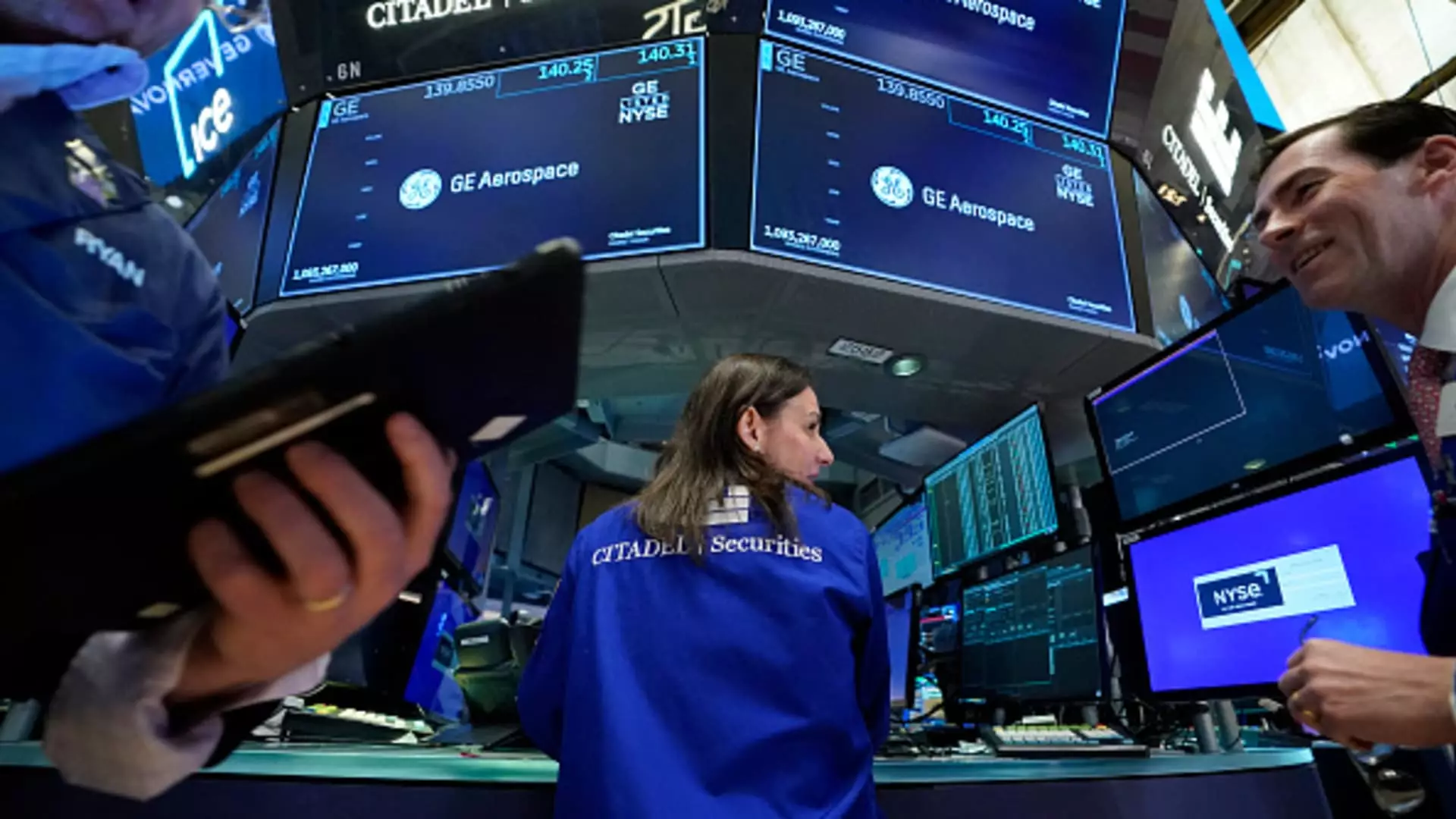The recent March inflation report has exceeded expectations, causing concern among investors about the potential impact on the stock market. Stocks experienced a significant decline following the release of the consumer price index reading, indicating a faster rate of acceleration compared to the previous month. The Dow Jones Industrial Average plummeted over 500 points, while the S & P 500 and Nasdaq Composite also saw notable drops. This heightened inflation has led to fears that the Federal Reserve may opt to maintain higher interest rates for an extended period, delaying any easing of monetary policy that was previously anticipated.
Investors had been optimistic about a potential shift in Fed policy towards easing starting in June, with expectations of three rate cuts throughout the year. However, the robust labor market data from March payrolls, coupled with the latest inflation figures, have dampened these hopes. Market projections now point to a delayed rate cut, with September being a more likely timeframe and only two quarter-point reductions anticipated for the entire year. Despite this adjustment in expectations, investors believe that the market can weather fewer rate cuts as long as the Fed refrains from raising rates abruptly.
Looking ahead, market analysts anticipate a period of volatility in the second quarter, with sideways trading expected as investors monitor economic indicators and corporate earnings. Energy companies are singled out as potential outperformers, building on a strong performance seen earlier in the year. Conversely, concerns have been raised about the implications of prolonged higher interest rates on stock market performance in the near future.
Divergent Views on Inflation and Rate Cuts
Experts hold differing opinions on the trajectory of inflation and its impact on interest rates. Some, like Wolf Research’s Rob Ginsberg, predict minimal changes in the fed funds lending rate this year, citing lingering concerns about inflation exceeding the Fed’s target of 2%. Ginsberg forecasts a moderate pullback of 4% to 6% in stock prices during the second quarter, in line with an expected rise in the 10-year Treasury yield. On the other hand, Carson Group’s global macro strategist Sonu Varghese remains optimistic about equity investments, foreseeing up to three rate cuts in the year, although the timing of the initial cut might be pushed to July.
Varghese highlights the ongoing disinflation narrative, emphasizing that certain components of the inflation report, such as cooling shelter costs and non-preferred items like car insurance, suggest a less alarming inflation trend. He underscores the Fed’s cautious approach, noting that while recent inflation data have been higher than expected, it does not necessarily trigger panic. Varghese echoes the sentiment that the road ahead may be bumpy, but there is confidence in the Fed’s patience and measured response to economic fluctuations.
The stock market faces a period of uncertainty amidst rising inflation and shifting Fed policies. While concerns persist about the potential impact of higher interest rates on market performance, there is cautious optimism that equities can weather the storm. Investors are advised to closely monitor economic indicators and corporate earnings to navigate through the volatile market conditions in the months ahead.

